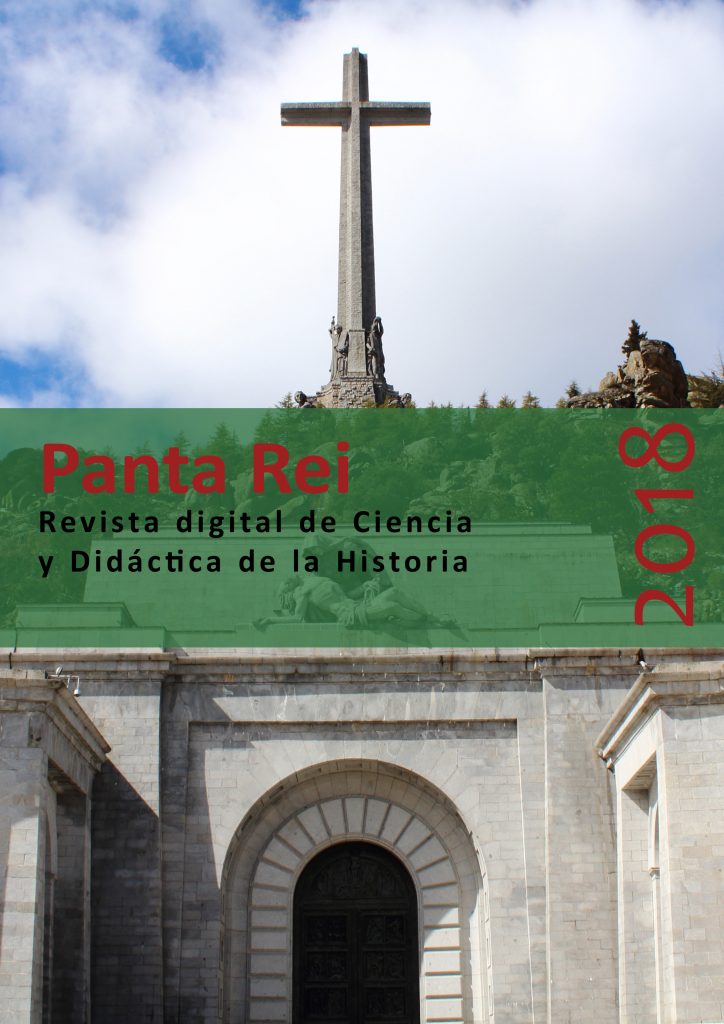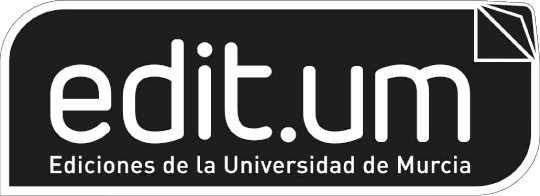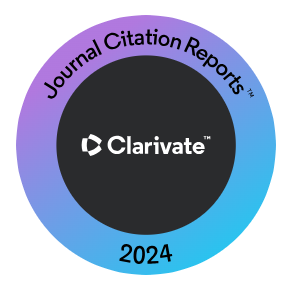Historical limits of Atheism: Disbelief in the Ancient Greece
Abstract
This article presents a historical discussion about the conceptual and historical limits of the irreligious phenomenon of atheism. The main aim is to approach the methodological lines of the study of atheism and to project them in the historical, cultural and religious context of Ancient Greece. The formal characteristics of the Greek religion will be analysed to understand the existence of sceptical positions about the existence of the gods. The study of the different historical sources allows us to analyse these atheistic positions, from the beginning of the philosophy with the pre- socratic philosophers until the classical period with Plato. It is a huge historical period with complex cultural events like the phenomenon of disbelief.
Downloads
-
Abstract1133
-
PDF (Español (España))377
References
Bernabé, A. (2004). Textos órficos y filosofía presocrática. Materiales para una comparación. Madrid: Trotta.
Bernabé, A. (2011). Platón y el orfismo - Diálogos entre religión y filosofía. Madrid: Abada Editores. Bourdieu, P. (1971). Genèse et structure du champ religieux. Revue Française de Sociologie, 12 (3), 295-334.
Bremmer, J. N. (2006) La religión griega. Dioses y hombres, santuarios, rituales y mitos. Córdoba: Ed. El Almendro (ed. original de 1999).
Bremmer, J. N. (2010). El Ateísmo en la Antigüedad. En M. Martin (Ed.), Introducción al ateísmo (pp. 29-44). Madrid: Akal.
Bruit Zaidman, L. y Schmitt Pantel, P. (2002). La religión griega en la polis de la época clásica. Madrid: Akal.
Buckley, M. J. (1987). At the Origins of Modern Atheism. New Haven: Yale University Press. Bueno, G. (2007). La fe del ateo. Las verdaderas razones del enfrentamiento de la Iglesia con el Gobierno socialista. Madrid: Temas de Hoy.
Burkert, W. (2007). Religión Griega. Arcaica y Clásica. Madrid: Abada Editores (ed. original de 1977). Cohen, D. (1988). The prosecution of impiety in Athenian law. Zeitschrift der Savigny-Stiftung für Rechtsgeschichte. Romanistische Abteilung, 105 (1), 695–701.
Comte-Sponville, A. (2008) El alma del ateísmo: introducción a una espiritualidad sin Dios. Barcelona: Paidós.
Díez de Velasco, F. P. (2014). Breve historia de las religiones. Madrid: Alianza Editorial (ed. Original de 2006).
Durán López, M. A. (2011). Los dioses en crisis. Actitud de los sofistas ante la tendencia religiosa del hombre. Madrid: Ediciones Clásicas.
García González, J. A. (2001). El Silencio Herodoteo y los procesos de asébeia en época de Pericles. Baetica. Estudios de Arte, Geografía e Historia, 23, 425-442.
Garland, R. (1990). Priest and Power in Classical Athens. En M. Beard y J. North (Eds.) Pagan Priests: Religion and Power in the ancient World (pp. 75-91). London: Duckworth.
Gericke, J. (2012). A fourth paradigm? Some thoughts on atheism in Old Testament scholarship. Old Testament Essays, 25 (3), 518–533.
Hyman, G. (2010). El Ateísmo en la Historia Moderna. En M. Martin. (Ed.), Introducción al ateísmo (pp. 45-64). Madrid: Akal.
Jaeger, W. (1952). La teología de los primeros filósofos griegos. México: Fondo de Cultura Económica (ed. original de 1936).
Leão, D. F. (2004). Matéria religiosa: processos de impiedade (asébeia). En D. F. Leão, L. Rossetti y M. G. Z. Fialho (Eds.), Nomos. Direito e sociedade na Antiguidade Clássica / Derecho y sociedad en la Antigüedad Clásica (pp. 201-226). Coimbra-Madrid: Imprensa da Universidade de Coimbra-Ediciones Clásicas.
Leão D. F. (2012). The Eleusinian Mysteries and Political Timing in the Life of Alcibiades. En L. Roig Lanzillotta e I. Muñoz Gallarte (Eds.). Plutarch in the Religious and Philosophical Discourse of Late Antiquity (pp. 181-192). Brill: Boston.
Martin, M. (2010). Ateísmo y Religión. En M. Martin (Ed.). Introducción al ateísmo (pp. 245-261). Madrid: Akal.
Merlo, V. (2007). La llamada (de la) Nueva Era: hacia una espiritualidad místico-esotérica. Barcelona: Kairós.
Notario, F. (2015). Despedazando el sacrificio: lo comible, lo incomible y el descuartizamiento de la víctima sacrificial en el mundo griego. En F. J. García, F. Lozano y A. Pereira (Coords.), El alimento de los dioses. Sacrificio y consumo de alimentos en las religiones antiguas. Sevilla: Universidad de Sevilla.
Pániker, A. (2011). El sueño de Shitala, viaje al mundo de las religiones. Barcelona: Kairós. Pániker, S. (2014). Diario de Otoño. Barcelona: Random House.
Panikkar, R. (1997). El silencio del Buddha. Una introducción al ateísmo religioso. Madrid: Siruela. Plácido Suárez, D. (1988). La condena de Protágoras en la historia de Atenas. Gerión. Revista de Historia Antigua, 6, 21-37.
Polignac, F. (1995). Cult, Territories and the Origins of the Greek City-State. Chicago: University of Chicago Press.
Puente Ojea, G. (1997). Ateísmo y Religiosidad. Reflexiones sobre un debate. Madrid: Siglo XXI. Ramos González, A. (2016). Ateísmo y espiritualidad. ‘Ilu. Revista de Ciencias de las Religiones, 21, 165-183.
Sedley, D. (2013). From the pre-socratics to the hellenistic age. En S. Bullivant y M. Ruse, M. (Eds.).The Oxford Handbook of Atheism (pp. 139-151). Oxford: Oxford University Press.
Stroumsa, S. (1999). Freethinkers of medieval Islam: Ibn al-Rāwandī, Abū Bakr al-Rāzī, and their impact on Islamic thought. Leiden: Brill.
Valdés Guía, M. (2012). La formación de Atenas. Gestación, nacimiento y desarrollo de una polis (1200/1100 - 600 a. C.). Zaragoza: Pórtico.
Verdegem, S. (2001). On the Road Again: Alcibiade’s restoration of the eleusinian pompe in Plu. Alc. 34.3-7. En A. Pérez Jiménez, F. Casadesús Bordoy y Sociedad Española de Plutarquistas (eds.), Estudios sobre Plutarco: misticismo y religiones mistéricas en la obra de Plutarco: Actas del VII Simposio Español sobre Plutarco (Palma de Mallorca, 2-4 de noviembre de 2000) (pp. 451-458). Madrid-Málaga: Ediciones Clásicas-Charta antiqua.
Whitmarsh, T. (2015). Battling the Gods: Atheism in the Ancient World. Nueva York: Alfred A. Knopf. Winiarczyk, M. (1976). Der erste Atheistenkatalog des Kleitomachos. Philologus, 120, 32-46.
Winiarczyk, M. (1989). Bibliographie zum antiken Atheismus. Elenchos, 10, 103–192.
Copyright (c) 2018 Ramón Soneira Martínez

This work is licensed under a Creative Commons Attribution-ShareAlike 4.0 International License.
All the contents published in this journal are subject to an Attribution-ShareAlike 4.0 International (CC BY-SA 4.0) Creative Commons License. You are free to: Share — copy and redistribute the material in any medium or format, Adapt — remix, transform, and build upon the material, for any purpose, even commercially. Under the following terms:
Attribution — You must give appropriate credit, provide a link to the license, and indicate if changes were made. You may do so in any reasonable manner, but not in any way that suggests the licensor endorses you or your use.
ShareAlike — If you remix, transform, or build upon the material, you must distribute your contributions under the same license as the original.
Full text of the license is available in: Creative Commons License 











